Elevating the Ordinary with Bethan Laura Wood
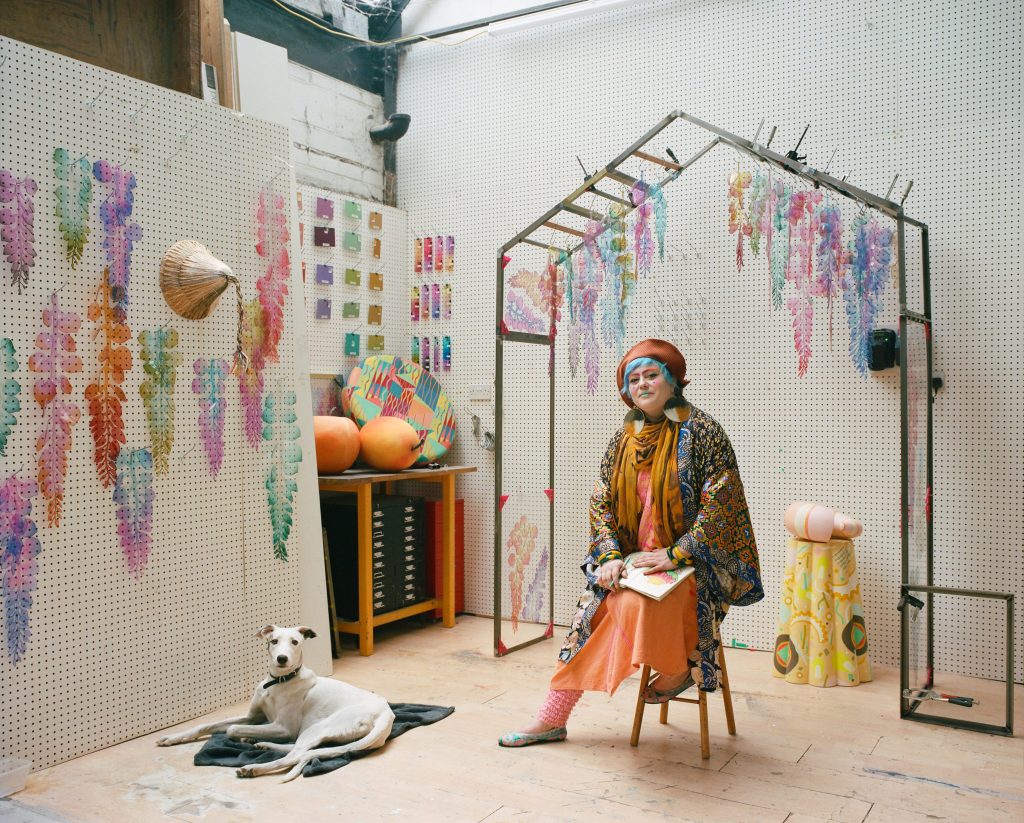
Bethan Laura Wood bridges the gap between the eclectic and the everyday object through her multidisciplinary Studio WOOD, based in London. By taking commonly overlooked items as inspiration and examining them as cultural conduits, Wood reconceptualizes the mundane, and by association, traditional spaces themselves. It’s hard to miss a Studio WOOD piece: colourful, avant-garde, and meticulously detailed, Wood’s range and innovative eye shine through in each of her collections. After studying Three-Dimensional Design at the University of Brighton, Wood graduated with a master’s degree in Product Design from the Royal College of Art in 2009. Simultaneously working on her practice WOOD London during her education, she formalized her signature style through tutors, travel, and prior personal tastes. Wood’s practice has expanded significantly to include collaborations with local artisans and well-known brands such as Tory Burch, Perrier-Jouët, Design Miami/, Hermes, and Moroso. Her works are exhibited in galleries internationally and she has lectured at many well known universities, including Central Saint Martins, RCA and ECAL.
FRONTRUNNER speaks to Bethan Laura Wood about her travels, her newest collaboration with Nilufar, and how she challenges societal norms through furniture.

I read that you completed an MA in design while starting your Studio WOOD. Tell me about working while learning, and what your educational experience was like.
I had started selling and producing works the year before I went to the RCA. For the first year I kept this going with orders on jewellery and a few commissions, but by the second year I stopped taking on new works so I could concentrate on my RCA work. I did not want to throw away the contacts and connections I had started to make while self-producing, but it was difficult to go from the student work to the commercial work every evening and at weekends. I wanted to make the most of the RCA opportunity, which was something I had been aiming for since I was 16 years old. I found it quite overwhelming at first, as I think I had built it up so much in my head; I was surrounded by so many talented designers and tutors who I had been reading about in magazines and admiring. It took me a while to find my own confidence and know that I had a voice that could be heard amongst all these people, and that I had a viewpoint which was valid. I thank Martino Gamper and Jurgen Bey, my tutors, who really believed in me and spent time trying to help me find my own way to express my ideas.
Pattern and colour are often definite indicators of a Bethan Laura Wood work. From where do you draw inspiration, and how did you discover your own signature design style?
I draw from the world around me. I am a very visual person; I have always been picking up objects and photographing environments around me. Colour and pattern are something I have been drawn to in my personal taste. In my art and design foundation year, I tried to make something from “public” patterns that I had been collecting, but it ended up being a super hot mess! I think it took the experience of the RCA for me to better understand how to design from these things that fascinate me, and to learn how to edit or make decisions about what things are right for what project. Now, not all my work is coloured, but I think there is a common theme of layering and attention to detail, or building up from a detail to create a rhythm and a language.
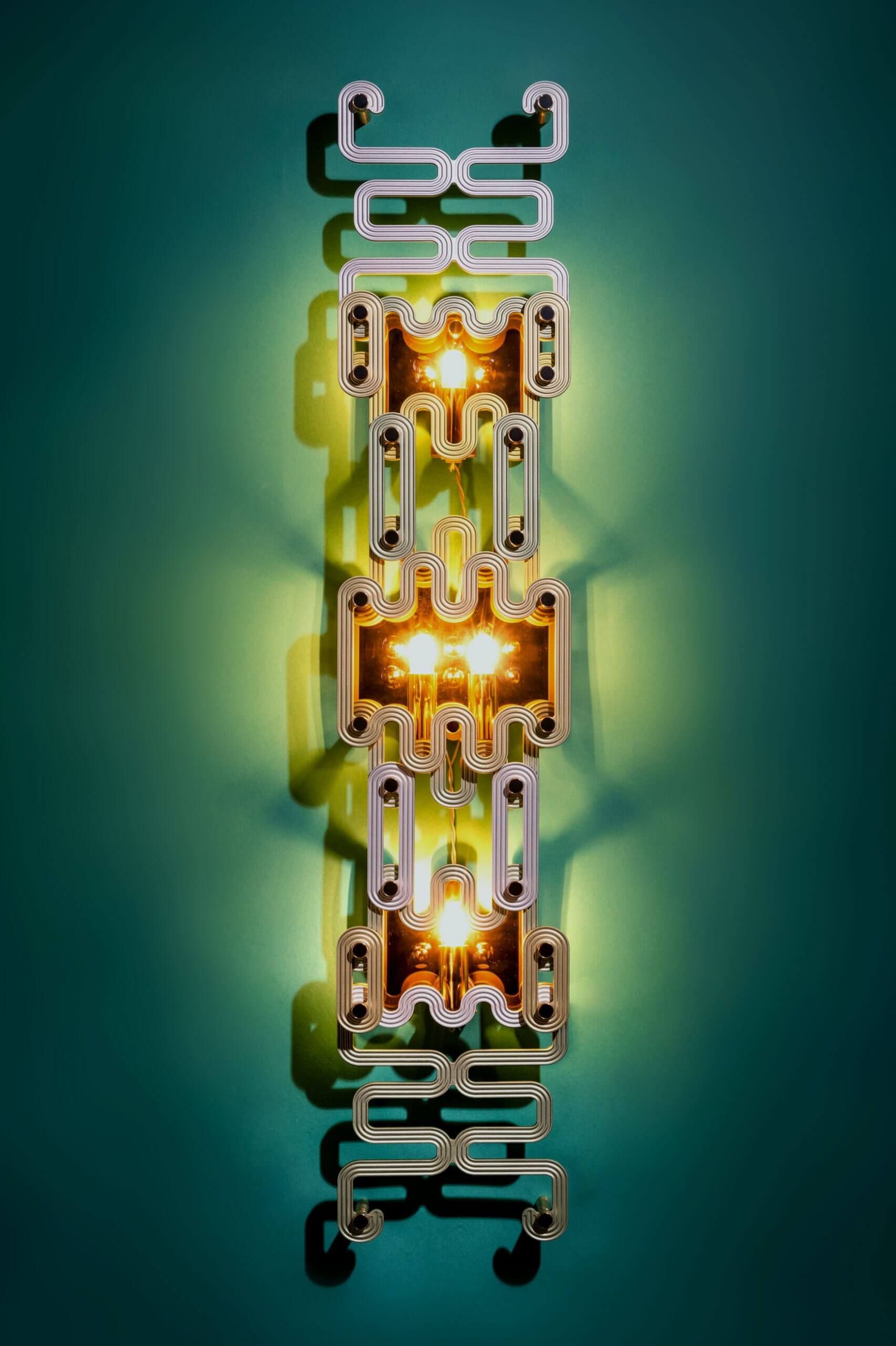
Ornate, Nilufar Gallery (Milan)
Photo credit: Angus Mills
You also talk about how residencies and location-based projects have become an important factor in your design process. What are some of the places you’ve gotten the most out of, design-wise?
The main places that have informed my work so far are London, Venice, Milan, Mexico and more recently, Japan and East Asia. London, you can see, informed a large part of the Super Fake marquetry series, especially considering all the time I’ve spent there and at the RCA. You can really see a change in my work post-2013, when I went to Mexico as part of the “Designer of the Future’” award for Design Miami Basel. It opened my eyes to a whole new way of building environments. The colour palette of Mexico had a huge effect on how I played with and used bolder colours.
In 2010, I did a residency in Venice which led me to be invited to a second in Vicenza. This is where I met Pietro Viero, a fantastic glass artisan – we started working together and have never stopped! There is a whole body of work developed specifically from a mix of our skills. In my solo show “Ornate” at Nilufar Gallery, you can see a Totem from our first project together, and then our latest project is the BonBon series. Having the opportunity to work with him has been a great joy and I love the language we have built together. 2011 is when I first showed with Nilufar Gallery Milan. Myself and Nina Yasha have just celebrated 10 years of working together. I definitely can see that being exposed to the amazing historical Italian designs – of Ponti, Sottsass, Branzi, and Albini for example – in the flesh and up close – helped me work on proportions and form.
Just before lockdown, I had been travelling in East Asia. I had visited Japan in October for a few years in a row. Then, in 2019, I got to go to Korea and a few places in China. I think you can see that the images I took on these last trips start to feed into my works from this time. I hope very much in the future to be able to return and work directly with artisans and industry in each of these counties.
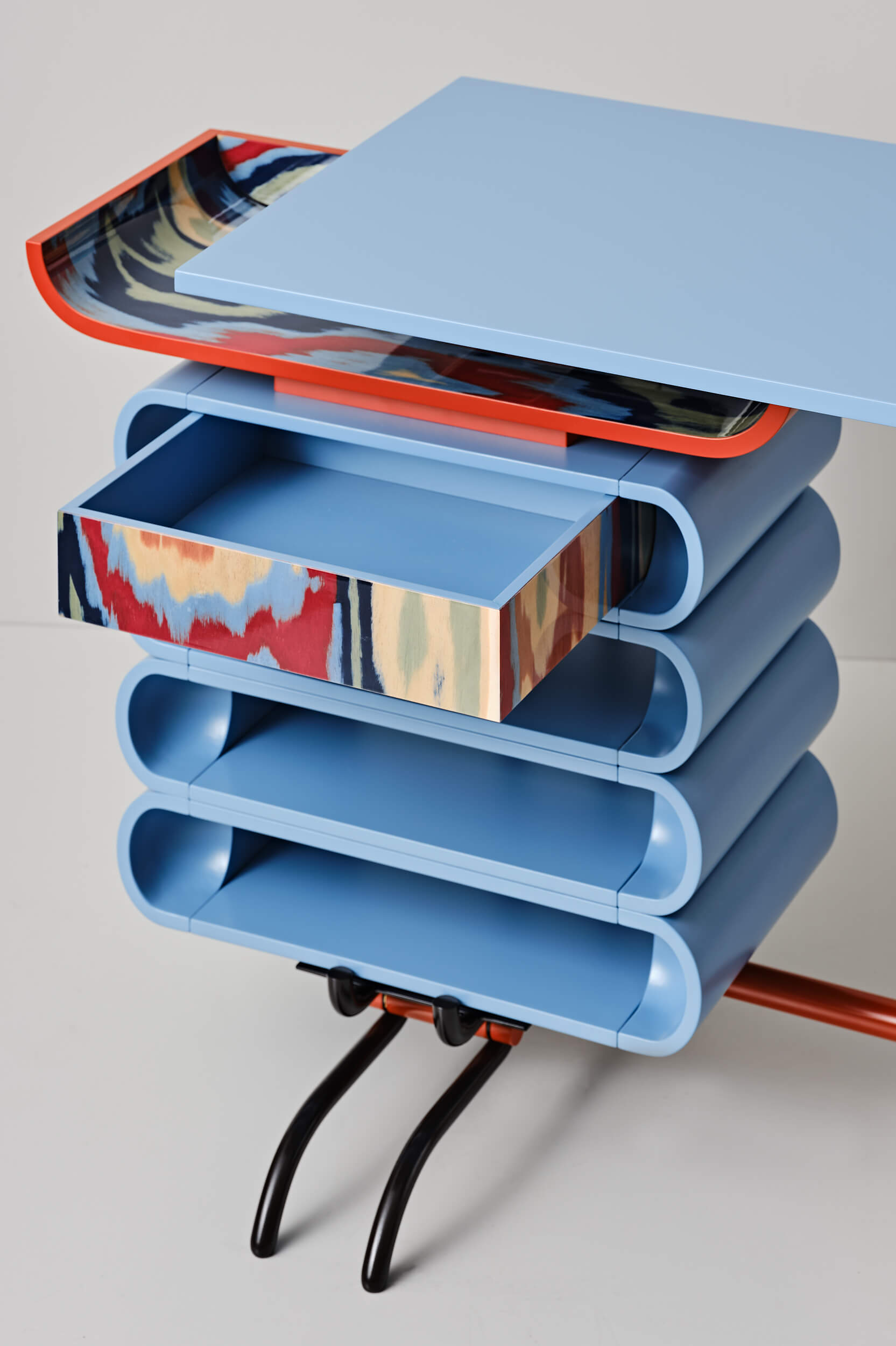
Meisen Desk
Courtesy of the artist and Nilufar Gallery (Milan)
Photo credit: Emanuele Tortora
In conversation with Wallpaper* about the Ornate collection with Nilufar, you talked about re-imagining objects normally associated with women in furniture. How else, in other works, have you been inspired by – and perhaps challenged – gendered ideals of space and objects?
All my works, at some point, are in conversation with this. I am a woman, and I do not try to hide this as being one of the many parts of my identity and culture that inform my works. However, I do not always make it a main driver for my decisions in my work. I like to keep space in the form of my works to allow different interpretations – to have room to include the views of others to read into them – versus one dominant viewpoint. I like that you can choose to read into the fact that I have made many works with materials that are common to the domestic kitchen, a space often associated with women (the laminate countertops and Pyrex bowls). In particular, [I use] materials that were connected to the “liberation of the kitchen” movement that aims to make work in the kitchen less back-breaking and time consuming. I carry on with this “liberation” by taking these works completely out of the kitchen and into the world of high-end furniture and design, thereby elevating them to inhabit all rooms and spaces of the home, not just the kitchen. I’m reworking these objects and materials in an industry that is traditionally dominated by men.
Lastly, what’s on the horizon for your practice?
I have a project about to launch with Dior, which is exciting. I have new carpets coming out with CC-Tapis in the new year and I will be working on more pieces from the world of “Ornate” to show in Milan’s Salone 2022, as it’s only just around the corner!

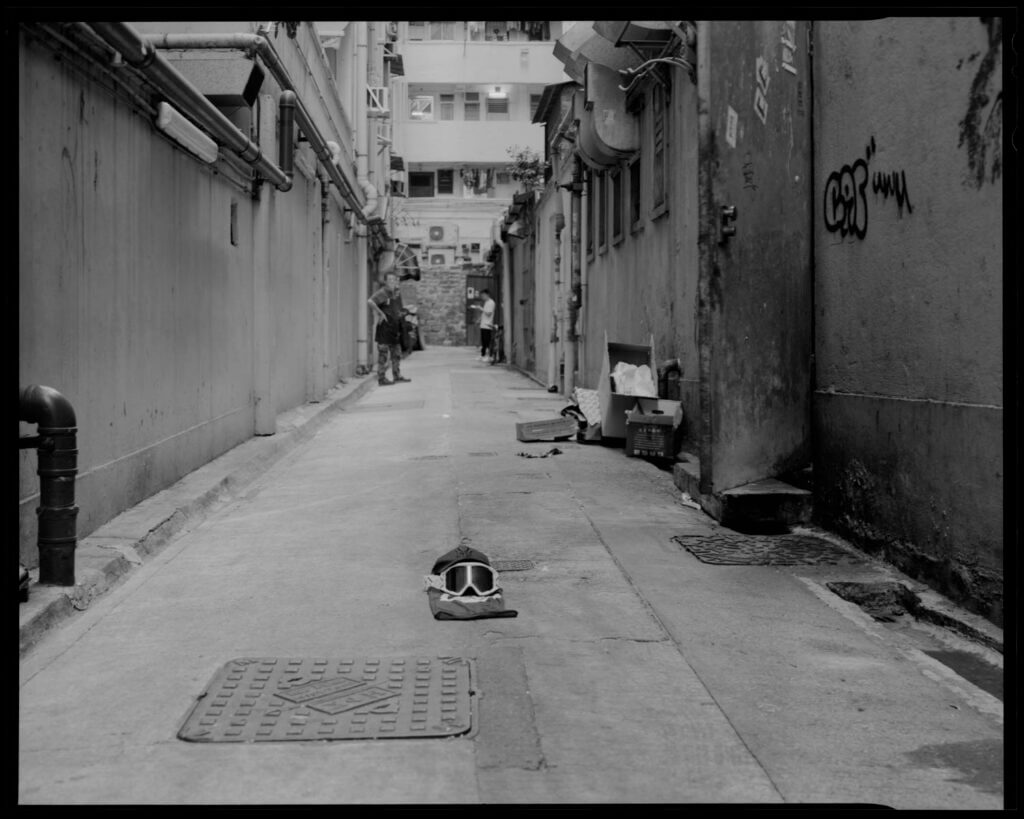
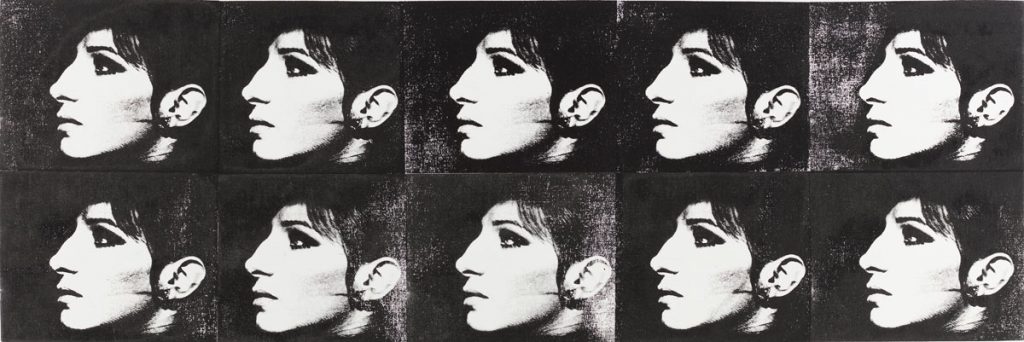
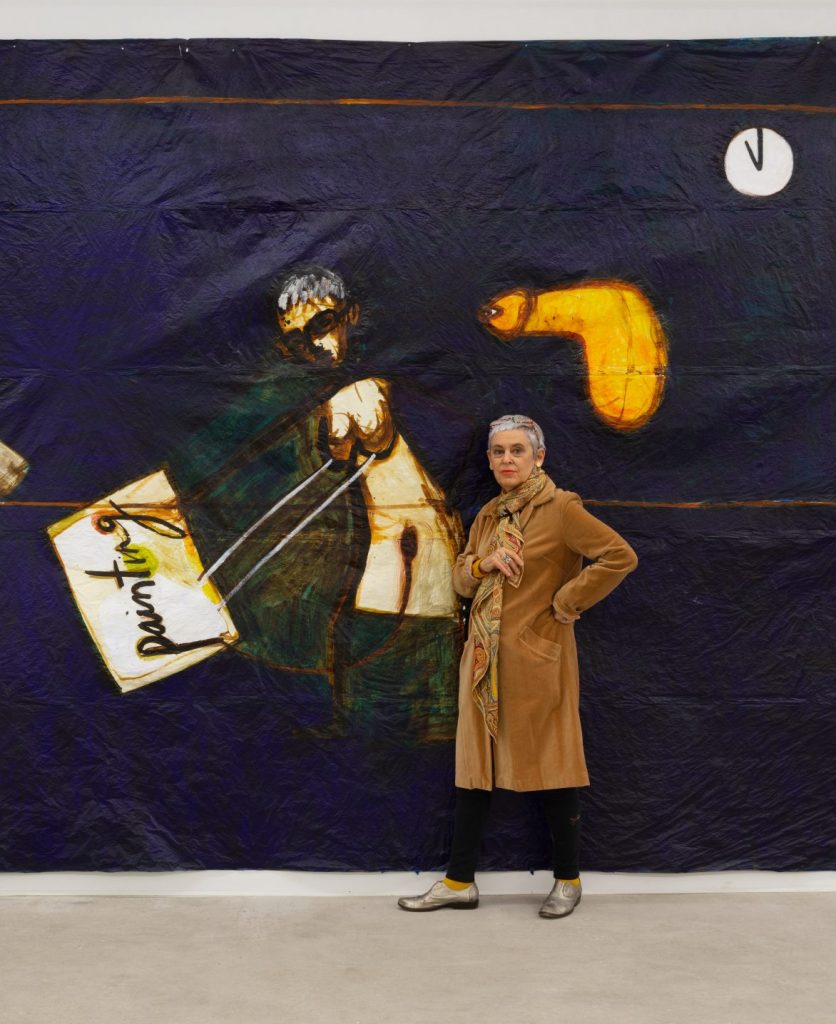

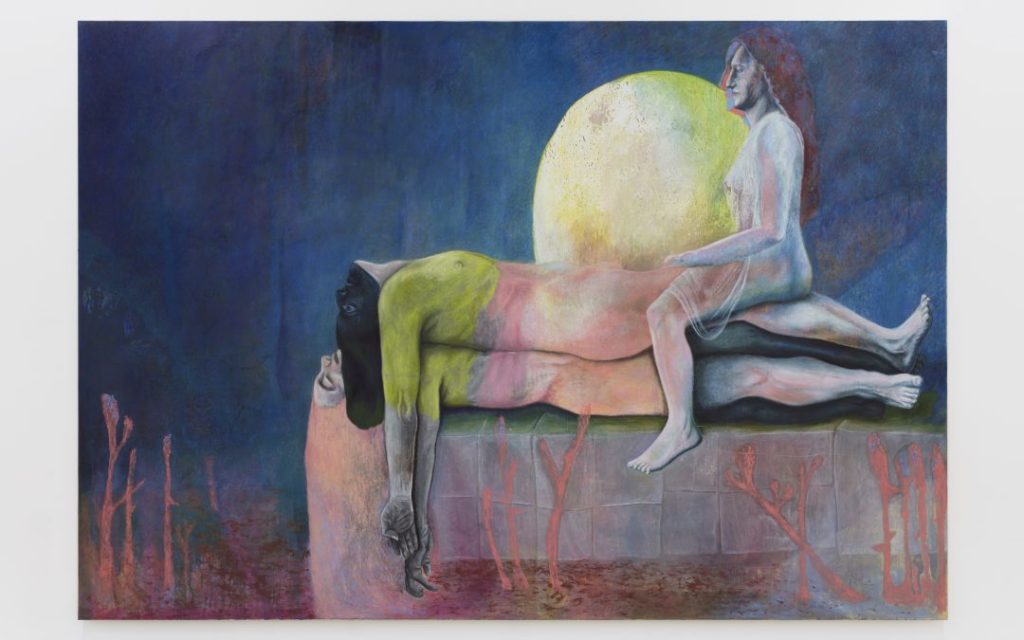
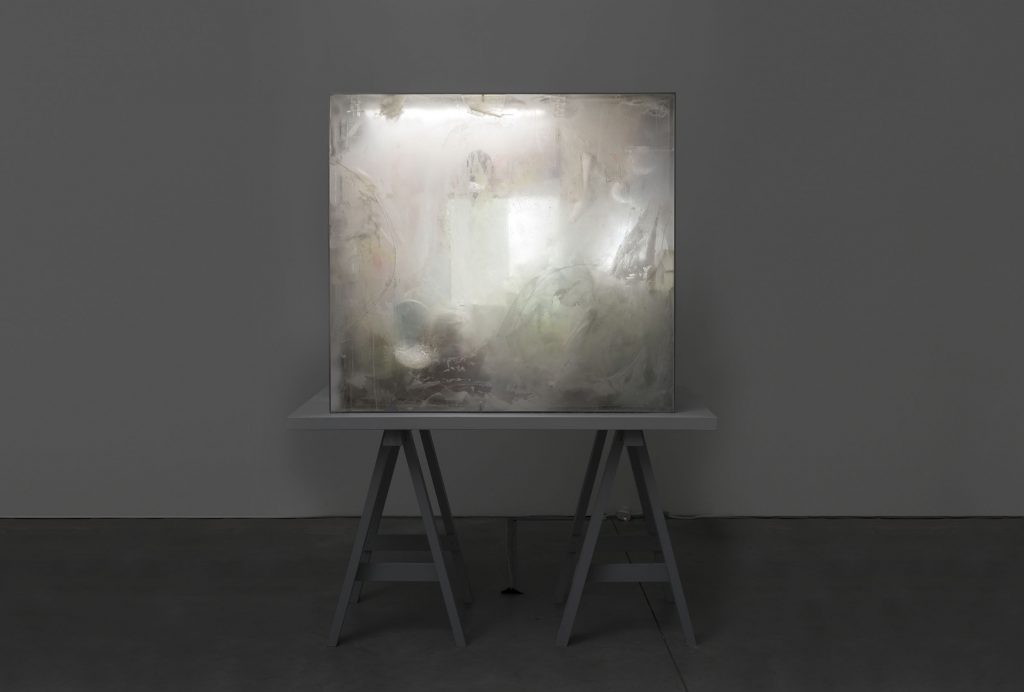
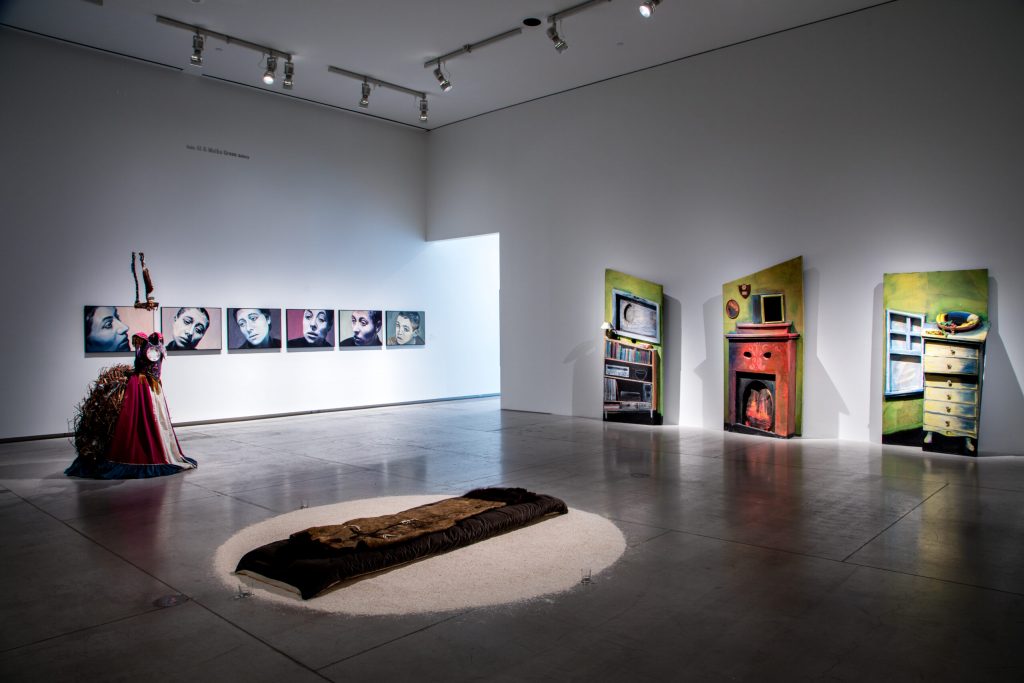
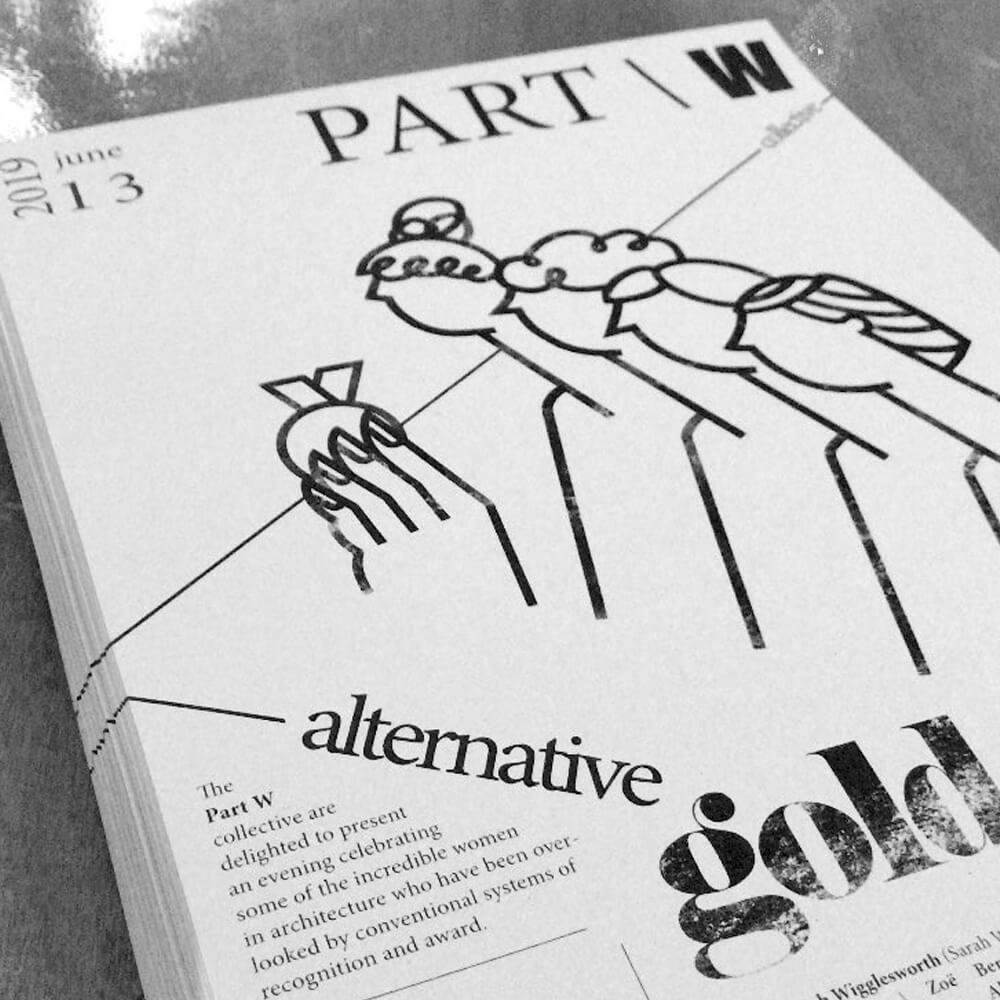
Responses